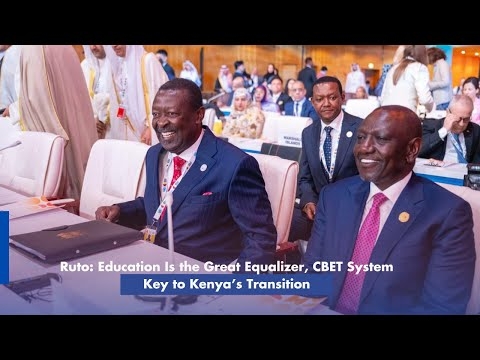Raila Odinga's push to have Deputy President Rigathi Gachagua hounded to the International Criminal Court have ignited debate on the ICC ghosts that have stalked Kenya for years.
The veteran opposition leader has said his Azimio coalition will be writing to the ICC to commence investigations into Gachagua and Inspector General of Police Japhet Koome.
We are taking Rigathi Gachagua's name to ICC tomorrow [Monday]," said Raila on Sunday during a rally at Kamkunji grounds.
"We are not mad men who want to see bloodshed in our country. We also have children, mothers and fathers. We want Kenyans to be united; if they have refused, then it is up to them."
Raila's latest remarks have exposed his previous stand on the ICC and also laid bare how his past comments cost him politically.
In the lead up to the 2013 general elections, Raila, then the country's prime minister strongly backed the trial of Kenya's 2007 post-election violence suspects at the Hague-based court.
In 2009, Raila said his government would not shield or protect senior officials if they were indicted by the international criminal court for crimes against humanity.
In an interview with the Guardian, Raila had voiced support for the Hague-based court.
The then ICC prosecutor, Luis Moreno-Ocampo, had said he would pursue a unilateral investigation into the 2008 bloodletting in which at least 1,133 people were killed.
"We said that we will not shield or protect people found to have committed crimes against humanity," he said.
"That is what we told Ocampo,'' Raila told Guardian in 2009.
Later in 2010, Raila affirmed his position saying he and the government opposed leaving the ICC process and that trials of post-election violence suspects would go ahead at The Hague.
“It is said clearly that even if you are to pull out ... the process takes one year and does not affect cases which are ongoing,” he said, referring to six high-profile Kenyans named by the ICC prosecutor that lawmakers want tried in Kenya.
“The government is not pulling out of the ICC process because this will be an exercise in futility,” Raila told Citizen TV then.
President William Ruto, then Eldoret North MP and retired President Uhuru Kenyatta, who was then the country's deputy prime minister were among six individuals named as 2007 post-election violence suspects.
Others were Henry Kosgey, Hussein Ali, Joshua Arap Sang, and Francis Muthaura.
The ICC would later terminate the cases but the trial at the Hague became a political hot potato that stirred the country's political arena ahead of the 2013 polls.
Ruto and Uhuru galvanised the country around the ICC narrative to beat Raila at the ballot in the ensuing general elections.
Analysts would later fault Raila on his pro-ICC stand for his election defeat.
In the run-up to the 2017 polls, Raila would again make controversial comments about ICC that proved costly.
He claimed that Uhuru would have been jailed by the Hague-based court for crimes against humanity in the 2007-08 post-election violence.
“He was accused of weighty charges. He was allowed to vie for President in 2013. Although he was charged with serious crimes against humanity, he was allowed to come home because of mercy,” Raila said.
He spoke on December 13, 2016 when he addressed the Wiper National Governing Council meeting at Kasarani indoor arena.
“Uhuru and Ruto should have been jailed ... Kenya will stay in the ICC whether Uhuru or Ruto likes it or not.”
The comments stirred the political waters with politicians then allied to Uhuru and Ruto whipping the tribal card to campaign against Raila.
Uhuru would later beat Raila in a contest poll but the election was nullified by the Supreme Court.
Raila boycotted the repeat poll, handing Uhuru an easy ride to State House for a second term.


















